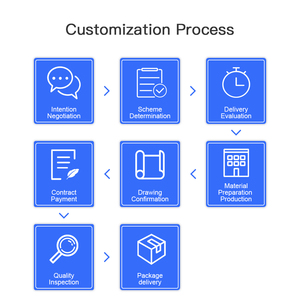Introduction to Embedded Linux Boards
Embedded Linux boards have revolutionized the way electronic devices operate by providing a robust platform for developing and deploying embedded systems. With the growing demand for sophisticated applications in various industries, these boards are designed to deliver high performance, flexibility, and reliability. They integrate Linux's powerful operating system functionalities, which allows developers to create custom applications for tasks ranging from basic data processing to complex real-time controls.
Types of Embedded Linux Boards
Embedded Linux boards come in a variety of types to meet different requirements and use cases. Here are some of the most common:
- Single-Board Computers (SBCs): These compact boards integrate all necessary components, like the CPU, RAM, and I/O ports, into a single unit, making them ideal for rapid prototyping.
- System-on-Module (SoM): These are small circuit boards that include a microprocessor, memory, and other essential components, designed to be integrated into a larger device.
- Development Kits: These include an embedded Linux board along with peripherals, allowing developers to start building applications without needing additional components.
- Industrial Boards: Specifically designed for harsh environments, these boards often have rugged features to withstand extreme temperatures and vibrations.
Applications of Embedded Linux Boards
The versatility of embedded Linux boards allows them to find applications across numerous industries. Here are some notable examples:
- Automotive Systems: Utilized in vehicle control systems and infotainment applications, enhancing safety and user experience.
- Home Automation: Powering smart home devices, these boards are pivotal in IoT applications, providing connectivity and intelligence.
- Medical Devices: Embedded Linux boards play a significant role in portable medical equipment, allowing for real-time monitoring and data processing.
- Telecommunications: Facilitating the development of networking equipment, these boards ensure efficient data handling and transmission.
Features and Advantages of Embedded Linux Boards
Embedded Linux boards come equipped with a range of features that cater to the needs of developers, along with various advantages that make them popular:
- Open Source: Linux is an open-source platform, allowing developers to modify and customize the OS according to specific application needs.
- Community Support: A vast community of developers contributes to continuous improvement, providing ample resources, libraries, and forums for problem-solving.
- Scalability: These boards can handle small tasks or scale up to complex processing needs, making them suitable for projects of all sizes.
- Power-Efficient: Many embedded Linux boards are designed to operate with low power consumption, essential for battery-powered devices.
- Versatile Connectivity: Equipped with multiple input/output interfaces, such as USB, GPIO, and Ethernet, these boards easily connect to various peripherals and devices.




















































































































































































































